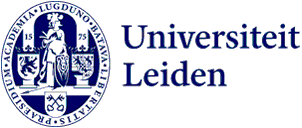Bart Custers in De Jurist on UBO register and privacy legislation
Ultimate beneficial owners (UBOs) of companies should have registered their information in the Dutch UBO register before 27 March 2022. The Dutch Minister of Finance saw no reason to postpone the deadline for registration, according to answers to parliamentary questions. In an article on the legal platform De Jurist, Professor of Law and Data Science Bart Custers talks about the UBO register.

A UBO is the owner or the person who is effectively in control of an organisation. The UBO register was set up to help prevent financial and economic crimes such as money laundering, financing terrorism, tax fraud and corruption.
In the article, Custers discusses, among other things, criticism voiced in the business community about the UBO register. 'The criticism concerns violations of privacy, for example. But this is not incompatible with privacy legislation. The General Data Protection Regulation (GDPR) says: if legislation exists on which the collection and protection of privacy-sensitive data is based, then it is allowed. In this case, it is done on the basis of the anti-money laundering directives of the European Union. In the Netherlands, this has been implemented in the Money Laundering and Terrorist Financing (Prevention) Act (Wwft). This is the legal basis for processing this data. So the government and the Chamber of Commerce are allowed to process this personal data.’
This legal basis means that the privacy argument is largely irrelevant, says Custers. 'Privacy law always involves a balancing of interests. Here, on the one hand, there is the interest of privacy of the person whose name and data are registered and, on the other hand, the significant interest of combating money laundering, terrorist financing, fraud and tax evasion. Certainly here in the Netherlands where we have so many letterbox companies. Of course, this is currently in the spotlight due to Russian oligarchs and their letterbox companies in the Netherlands.'
This has to do with the fact that the Netherlands has the reputation of being a tax haven. 'Yes, it’s a thorny issue in Europe that the Netherlands does little about this situation. The Netherlands is regarded as a tax haven because of the many letterbox constructions. You wonder why letterbox companies are not banned completely or why they are not taxed more. But there’s an interest for the Dutch economy. Money is made by the offices that arrange the registrations for foreign clients.'
